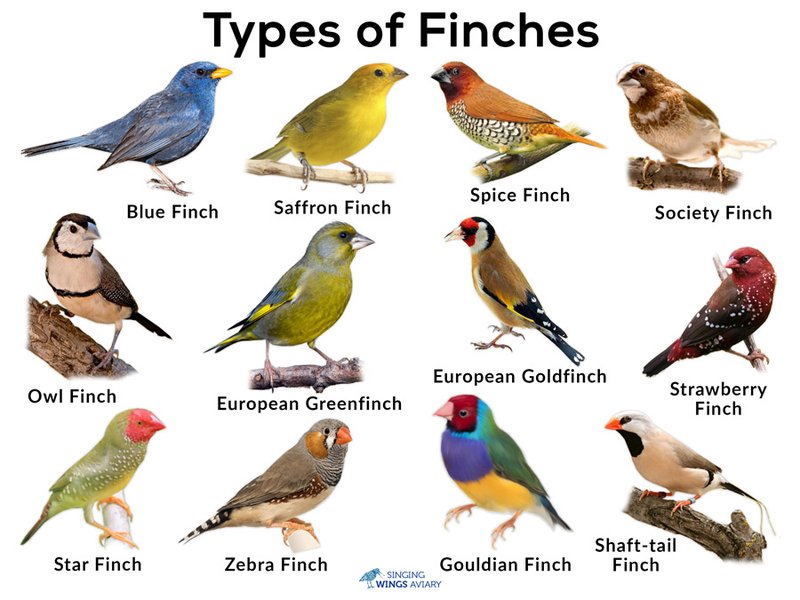
When we think of finches, we often picture their vibrant feathers and active social behavior. But their sounds—those sweet chirps and trills—play a crucial role in how they communicate. Think of it like having a chatty roommate; some conversations are delightful, while others can be a bit much. In this article, we’ll explore the various noises finches make, what you can do to manage their sounds, and whether they’re truly the right pet for you.
The Sounds of Finches: What Do They Sound Like?
When finches are happy, they express it through a variety of sounds. You’ll hear cheerful chirping and melodious trills that can brighten up a room. But there’s more to it than just happy tunes.
Chirps and Trills
Finches don’t just sing; they communicate a lot through various chirps and trills. Their calls can signal everything from excitement to hunger. For example, a finch might chirp energetically to greet a companion or even to let you know it’s time for a snack. These sounds can be delightful, especially if you enjoy a lively atmosphere.
Squawking and Loud Calls
However, some finches can have a loud side, especially if they’re startled or feeling territorial. While you might love the music they sing, be prepared for the occasional squawk. This can be quite jarring if you’re not expecting it. Here’s the thing: If you have a small apartment or live in close quarters with neighbors, the louder calls might become an issue.
Why Do Finches Make Noise?
You might be curious about why finches make these various sounds. Communication is key in the bird world, and finches use their voices to interact with each other and their environment.
Social Interaction
Finches are social creatures that thrive in groups. This means they often vocalize to strengthen their bonds with companions. If you have multiple finches, you’ll notice they tend to converse with each other. This is part of their charm—seeing their interactions can be heartwarming!
Survival Instincts
In the wild, finches use their sounds to warn others about potential dangers or predators. This instinct doesn’t disappear when they come home with you. So, a sudden loud call could mean they sense something that makes them feel uneasy. Keeping an eye on their environment can help you understand their behavior better.
How Much Noise Can You Expect from Finches?
If you’re considering finches as pets, it’s essential to know what you’re signing up for sound-wise. Generally, finches are known to be moderately noisy, especially when compared to larger birds.
Daily Noise Levels
On a typical day, you might hear a pleasant combination of chirping and singing. But during specific times, such as feeding or when they’re particularly excited, their noise level can spike. Expect to hear sounds throughout the day, especially if they’re active and happy.
Nighttime Quiet
The good news is that finches settle down when the sun goes down. Unlike some other pet birds that may continue making sounds late into the night, finches tend to be quiet after sunset. So, you won’t have to deal with nighttime noise, which is a relief for many pet owners.
Managing Noise Levels in Your Home
If you’re concerned about noise, there are a few things you can do to manage it. Finches are adaptable birds, so little adjustments can help keep the peace.
Location Matters
Consider where you place their cage. If you have the freedom to choose, put it in a quieter part of the house where they can enjoy their chirping without bothering others. Keeping them in a room where you spend most of your time can also help you enjoy their sounds without them becoming overwhelming.
Companionship
Keeping multiple finches can help keep their noise levels in check. When they’re with their kind, they often entertain each other, which can mean fewer calls directed at you. Think about it: just like humans, finches are happier in company, and their joyful sounds will likely fill your home in a harmonious way.
Are Finches Right for Your Home?
So, are finches the ideal pet for you? It depends on a few factors. Here’s a quick rundown to help you decide.
Consider Your Environment
If you live in a small apartment or have noise-sensitive neighbors, you may want to think twice. While finches can be charming, their noise can occasionally become a concern. On the other hand, if you have a house with plenty of space, their lively sounds can be a delightful part of your home life.
Time and Attention
Finches do need social interaction, so if you’re out most of the day, they might become lonely. This can lead to louder noises as they try to call out for companionship. Understanding their social needs is key to ensuring a happy home for both you and your finches.
Bringing finches into your life can be a joyful experience, full of chirping and singing that brings a bit of nature into your home. While they do make noise, understanding their behavior and sounds can lead to a harmonious relationship. They can be lively companions, especially when cared for in a suitable environment. From their cheerful tweets to the occasional loud call, finches add a unique charm to any space. If noise is something you’re willing to manage, these little birds can be a delightful addition to your life. So, grab a cage, set up a cozy space, and get ready to enjoy the sounds of finches!

